Nutritionist Le Thao Nguyen - Nam Sai Gon International General Hospital replied: Many people think that skipping dinner or eating very little will help lose weight. In fact, this method can easily cause the body to lack energy, crave food at night, and feel tired, causing nutritional imbalance. On the contrary, there are also many people who eat too much at dinner, especially starch, fried foods, or eat close to bedtime. This increases the risk of bloating, indigestion, sleep disorders, and excess fat accumulation, especially in the abdomen.
A scientific dinner needs to provide just enough energy, not too little and not too much, and most importantly, balance starch - protein - vegetables - fat.
How to balance food groups in dinner
Starch (about 25% of your diet): Choose complex carbohydrates like brown rice, sweet potatoes, oats, or beans. These foods have a low glycemic index, release energy slowly, help you feel full longer, and avoid cravings later.
Protein (about 25% of your diet): Prioritize easily digestible, low-fat proteins like chicken breast, fish (salmon, mackerel), tofu, or nuts. Protein helps maintain muscle and supports metabolism. You should limit red meat (pork, beef, goat, lamb...) or processed meats in the evening because they are difficult to digest and high in saturated fat.
Vegetables (about 50% of the serving): Eat a variety of dark green leafy vegetables, broccoli, cauliflower, tomatoes, cucumbers, etc. to supplement vitamins, minerals, fiber, create a feeling of fullness, aid digestion and prevent constipation. Eating a bowl of vegetables before meals helps you feel full longer, limits overeating, reduces sugar and fat absorption.
Fats: Use only small amounts of olive/sesame/gac oil, avocado or nuts. These fats are good for the heart and help absorb fat-soluble vitamins. Limit animal fats and fried foods in the evening. If frying, choose soybean, sunflower or peanut oil.

A nutritionist gives a patient a nutritional consultation.
PHOTO: TH
6 foods to limit at night
Fried foods, lots of oil : Causes bloating, indigestion, increased risk of gastric reflux.
Red meat and processed meat (sausages, bacon): Difficult to digest, high in saturated fat, affects the stomach and sleep.
Sweets, candies, and sugary desserts: Increase excess energy, easily cause weight gain and sleep disorders.
Spicy, highly seasoned foods : Can irritate the stomach, causing heartburn and difficulty sleeping.
Caffeinated drinks (coffee, strong tea, energy drinks): Inhibit melatonin (a hormone secreted by the pineal gland in the brain), making it difficult to fall asleep and stay asleep.
Alcoholic beverages (wine, beer): Can cause sleep disorders and dehydration.

Doctor analyzes the patient's nutritional regimen
PHOTO: TH
Habits to maintain after dinner
In addition to food choices, post-dinner habits also play an important role in maintaining shape and health:
Light walking : After eating for about 30 minutes, you can walk slowly for 15-20 minutes to help stimulate digestion and burn energy.
Avoid lying down immediately: Lying down immediately after eating can cause acid reflux , you should sit up straight or walk around gently.
Eat dinner at least 2-3 hours before bedtime : helps the stomach digest and avoid bloating.
Avoid stimulants : Limit coffee, strong tea, and alcohol in the evening. If you want, you can drink a cup of warm milk with little sugar to help you relax and sleep better.
Get enough sleep : 7-8 hours per night helps the body regulate hormones, especially hormones related to hunger and fullness (ghrelin and leptin), thereby helping to control weight more effectively.
A light, balanced dinner and healthy post-meal habits are the key to staying fit and sleeping well. For those with special medical conditions such as diabetes, stomach problems, or sleep disorders, you should consult a nutritionist for advice on a diet that is appropriate for your health.

Source: https://thanhnien.vn/alo-bac-si-nghe-co-nen-nhin-an-toi-de-giu-dang-thon-tranh-tich-mo-bung-185250927000717513.htm








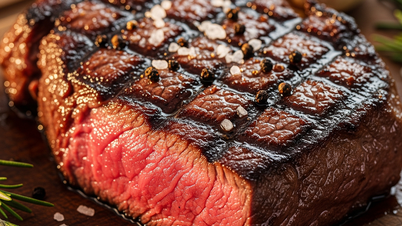
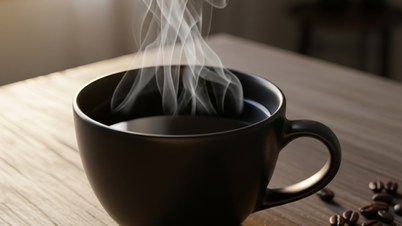



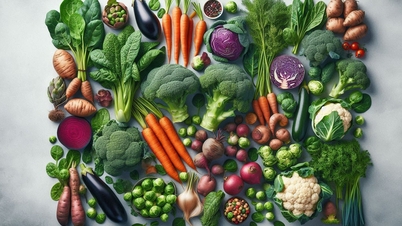








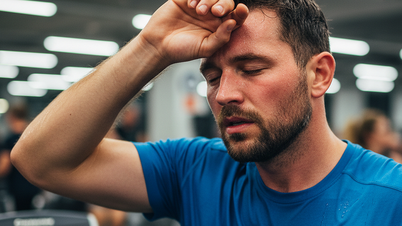









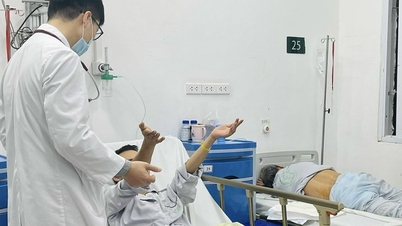


![[Photo] Keep your warehouse safe in all situations](https://vphoto.vietnam.vn/thumb/1200x675/vietnam/resource/IMAGE/2025/10/1/3eb4eceafe68497989865e7faa4e4d0e)





























































Comment (0)